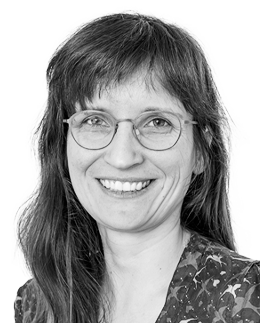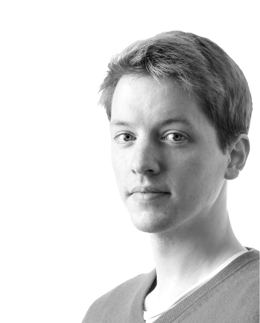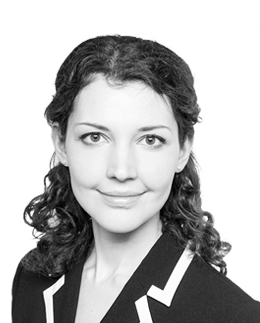Dr. Sophie Biesenbender studied politics and public administration at the universities of Konstanz and Bologna and public policy at Rutgers University, New Jersey. From 2008 to 2011 she was research assistant at the Robert Schuman Centre for Advanced Studies (European University Institute). After completing her dissertation in politics and public administration (2011) she was a postdoctoral researcher at Konstanz University. Sophie Biesenbender started to work at the DZHW (or its predecessor organisation iFQ - Institute for Research Information and Quality Assurance) in 2012. Since then, she has managed different projects with a focus on research information and research indicators. Between summer 2020 and spring 2022, she was acting head of department 2 (Research System and Science Dynamics). Since February 2022, she is head of office of the Commission for Research Information in Germany.

Dr. Sophie Biesenbender (geb. Schmitt)
Research Area Research System and Science Dynamics
Researcher
- +49 30 2064177-37
- +49 30 2064177-99
- Orcid
List of projects
List of publications
List of presentations & conferences
Dr. Unbekannt? Rückblick, Status quo und Ausblick zur Datenlage promovierter Wissenschaftler:innen.Biesenbender, S. (2022, September).Teilnahme an der Podiumsdiskussion Dr. Unbekannt? Rückblick, Status quo und Ausblick zur Datenlage promovierter Wissenschaftler:innen im Rahmen des 8. UniKoN-Werkstattgespräches, UniKoN - Koordinierungsstelle Nachwuchsinformationen, Leipzig. |
Erfassung promovierter Wissenschaftler:innen gemäß KDSF: Ansätze und aktuelle Entwicklungen.Biesenbender, S. (2022, September).Erfassung promovierter Wissenschaftler:innen gemäß KDSF: Ansätze und aktuelle Entwicklungen. Vortrag im Rahmen des 8. UniKoN-Werkstattgespräches, UniKoN - Koordinierungsstelle Nachwuchsinformationen, Leipzig. |
Kerndatensatz Forschung: Entwicklungen und Strukturen.Biesenbender, S. (2022, Juni).Kerndatensatz Forschung: Entwicklungen und Strukturen. Vortrag im Rahmen der 117. Sitzung der Kommission für Statistik (Bereich Hochschule) der Kultusministerkonferenz, Niedersächsischen Ministerium für Wissenschaft und Kultur, Hannover/online. |
Was bestimmt den Impact medizinischer Forschung? | Abschlussveranstaltung des Projektverbunds „QuaMedFo“.Biesenbender, S., Herrmann-Lingen, C., & Peters, I. (2022, Mai).Was bestimmt den Impact medizinischer Forschung? | Abschlussveranstaltung des Projektverbunds „QuaMedFo“, Verbund QuaMedFo, Göttingen/online. |
Developing a classification of interdisciplinary research fields for the German science system – processes and results.Biesenbender, S. (2022, Mai).Developing a classification of interdisciplinary research fields for the German science system – processes and results. Vortrag im Rahmen des Congreso Internacional sobre Metadatos 2022 (CIM2022), Universidad Nacional Autónoma de México (UNAM), Instituto de Investigaciones Bibliotecológicas y de la Información, Ciudad de México, Mexiko. Abstract
In 2020, a cooperative project at Humboldt University Berlin and the German Centre for Higher Education Research and Science Studies (DZHW) developed a research field classification to categorize problem related and interdisciplinary research in Germany. The aim of this classification is to improve the reporting of research information by offering a complement to discipline-oriented subject classifications, e.g. in the context of the Research Core Dataset (Kerndatensatz Forschung – KDSF). The KDSF is a standard developed for the German science system to harmonize the reporting on research and research activities (such as scientific publications, projects patents etc.), e.g. for the purpose of assessing or evaluating research institutes. |
Neuigkeiten zum Kerndatensatz Forschung.Biesenbender, S. (2022, Februar).Neuigkeiten zum Kerndatensatz Forschung. Vortrag im Rahmen des Leibniz-Workshops zu Forschungsinformationssystemen (CRIS), Leibniz-Gemeinschaft. https://doi.org/10.5281/zenodo.7906932 |
Nachwuchsinformationen, wofür? Der KDSF für eine harmonisierte Berichterstattung über den wissenschaftlichen Nachwuchs.Biesenbender, S. (2021, November).Nachwuchsinformationen, wofür? Der KDSF für eine harmonisierte Berichterstattung über den wissenschaftlichen Nachwuchs. Vortrag im Rahmen des 7. UniKoN-Werkstattgesprächs, UniKoN - Koordinierungsstelle Nachwuchsinformationen. |
Developing a Classification for Interdisciplinary Research Fields for the German Science System.Biesenbender, S. (2021, September).Developing a Classification for Interdisciplinary Research Fields for the German Science System. Vortrag im Rahmen der Veranstaltungsserie "Knowledge Organization Research Observatory (KO-RO)", ISKO UK – The UK Chapter of the International Society for Knowledge Organisation. Abstract
Research classifications are essential for the reporting and evaluation of research. As part of R&D statistics, disciplinary classifications have become crucial elements of CRIS systems and the processing of research information. Recently, the German RCD standard (short for Research Core Dataset) has been complemented by a newly developed classification to represent “fields of research” in addition to disciplinary classifications. From this perspective, research fields focus on interdisciplinary, issue- or problem-related research. The presentation provided an overview of the recently completed project to develop a classification for research fields, the project’s context, its methodological approach and results. |
Helpdesk zur Einführung des KDSF: Einsichten aus vier Jahren Arbeit an und mit dem Standard.Biesenbender, S. (2021, März).Helpdesk zur Einführung des KDSF: Einsichten aus vier Jahren Arbeit an und mit dem Standard. Vortrag im Rahmen der Online-Informationsveranstaltung zum „KDSF – Standard für Forschungsinformationen in Deutschland“, Helpdesk zur Einführung des KDSF/DZHW, Berlin. |
Weiterentwicklung des Kerndatensatz Forschung: Prozesse und Ergebnisse.Biesenbender, S. (2021, März).Weiterentwicklung des Kerndatensatz Forschung: Prozesse und Ergebnisse. Vortrag im Rahmen des 5. VIVO-Workshop, TIB - Leibniz-Informationszentrum Technik und Naturwissenschaften, Hannover. http://doi.org/10.5281/zenodo.5084347 |
Das Projekt " Entwicklung einer Klassifikation für interdisziplinäre Forschungsfelder im Rahmen des Kerndatensatz Forschung " .Biesenbender, S., & Simons, A. (2021, März).Das Projekt "Entwicklung einer Klassifikation für interdisziplinäre Forschungsfelder im Rahmen des Kerndatensatz Forschung". Vortrag im Rahmen des Kolloquiums des DZHW Berlin, DZHW, Berlin. |





